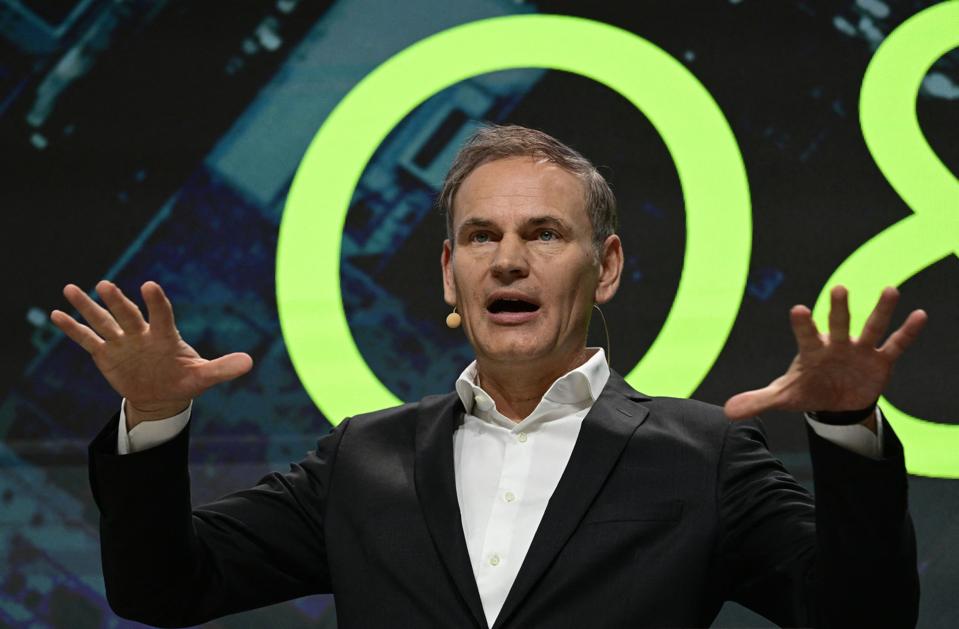Auto investments have been volatile this week as a European tariff deal with the U.S. seemed imminent. The nervousness shows hopes for an early deal might be wishful thinking.
An announcement is expected next Friday.
The STOXX Europe 600 Automobiles & Parts Index, which tracks European automakers and suppliers, jumped 3.4% in mid-week on news Japan had agreed a 15% tariff on its auto exports to the U.S. That rally was led by Mercedes, Volkswagen and BMW.
Japan’s deal was 10 percentage points lower than President Trump’s recent threat and immediately set off speculation that it might be possible for Europe too. After all, Trump has attacked the European Union for its excessive and dishonest barriers to trade, but Japan has proved itself as adept as the EU in weaponizing so-called non-tariff barriers.
The index held on to its gains by the close Friday after much volatility and ended the week at just over 545.20, up nearly 4 points.
According to Bloomberg, citing diplomats briefed on the negotiations, the EU and the U.S. are working towards an agreement that would set a 15% tariff for imports including autos. But they also cautioned that the ultimate decision was President Donald Trump’s and this was difficult to predict.
Plea for caution
Caution would make sense, as former U.S. ambassador to the European Union Gordon Sondland has pointed out. He reminds investors that Trump has wanted to mitigate what he considers long-term unfairness by the EU which extends past tariffs to corrupt non-tariff barriers too.
Sondland said in an interview with BBC NewsNight program earlier this year, the EU imposes hidden barriers on American products. For cars, that can mean different safety standards. For food, there also are standards the EU doesn’t like. Hormone-fed beef is one area of contention.
“If we sell you a vegetable or a car or a product if it’s safe to use in the U.S. it should deemed to be safe to use in the EU,” Sondland said.
He was asked to sum up Trump’s tariff plan for Europe and the world.
“The U.S. is tired of talking about impediments to its foreign trade and wants action now,” he said. “The message is very clear. We’ve had a list of demands and requests from all of these friends for years and sometimes decades and the results are similar every time. They take it under advisement. They’ll think about it then get back to us and Donald Trump has had enough of that.”
Sondland was ambassador to the EU during Trump’s first term and made clear he wasn’t speaking for the administration.
Volkswagen hopes for deal
Volkswagen, Europe’s biggest auto manufacturer, reported Friday that it had taken a $1.5 billion hit to earnings in the first half of 2025 because of the tariff issue, and CEO Oliver Blume expressed hopes that a favorable tariff deal was possible.
“We hope that it will come to a well-balanced deal between the U.S. and the EU, which allows fair trade between the regions,” Blume told an investor briefing after the earnings announcement.
Blume expected a 15% tariff deal, similar to the Japanese arrangement. He also said Volkswagen and European automakers were looking at possible investment and production arrangements that might bring down tariffs more. Audi might start output in the U.S. too, Blume said.
Investments in U.S. production would earn extra points to bring down the tariff rates. Exports from the U.S. of German production there would also earn points.
BMW’s Spartanburg, South Carolina factory is the biggest German auto exporter from the U.S., shipping nearly 225,000 vehicles with a value exceeding $10 billion in 2024. Mercedes’ factory in Tuscaloosa, Alabama, is another significant exporter. Volkswagen also has a presence in the U.S., including a plant in Chattanooga, Tennessee, but their exports are much smaller than BMW’s and Mercedes’.
Will Europe match Japan’s investment commitment?
Chicago-based investment researcher MorningStar said a critical point of Japan’s deal was its commitment to invest half a trillion dollars in the U.S.
“Will Europe do the same? While the European automakers have significant investment plans in the U.S. in their pipeline, the figures do not come close to Japan’s commitment,” said analyst Rella Suskin.
“Companies such as BMW and Mercedes have spoken with extreme confidence in reaching a deal that allows for the netting of imports and exports. For every car that they export from the U.S., they can import one car either duty-free or at a reduced duty. The Japanese-U.S. trade deal indicates that there is negotiating room to be had around import duties on cars coming into the U.S.,” Suskin said.

